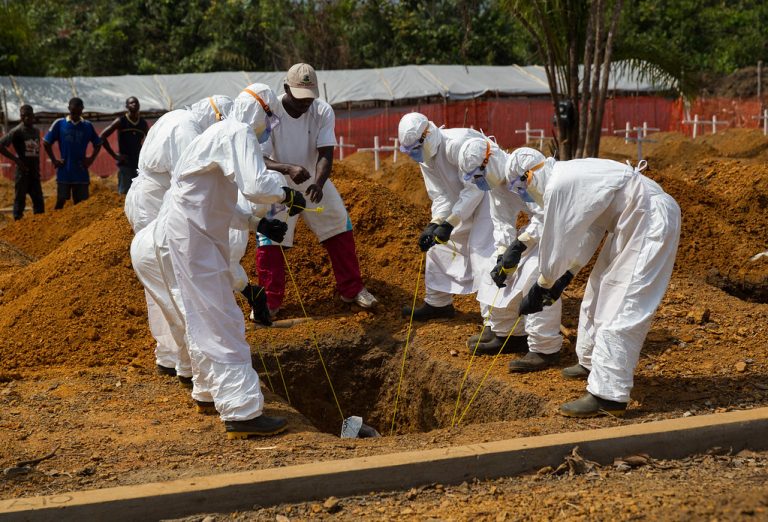The highly contagious fever has so far killed 2,185 people, according to the latest official figures, but health workers have faced attacks and threats.
The latest attack occurred in the early hours of Sunday after a Congolese radio host, who helped spread information in the fight against Ebola, was stabbed to death at his home in the Ituri region.
In April, a Cameroonian doctor from the World Health Organization (WHO), was shot dead in an attack on a hospital in North Kivu province.
A report from the Congolese health ministry said since January 1, 2019, there had been “more than 300 attacks on health workers” which had killed six people and injured 70 others, among them health care workers and patients.
Read Also: Congolese Anti- Ebola Fighter Killed In Home Attack
The report also warned “each attack delays” efforts to fight Ebola as it prevents teams having to access the population to carry out planned interventions.
“In any case, the response team will continue to fight this disease with the involvement of communities and the affected population, including the support of all partners involved,” authorities said.
Efforts to roll back the epidemic have been hampered not only by fighting but also by resistance within communities to preventative measures, care facilities and safe burials.
It is the DRC’s 10th Ebola epidemic and the second deadliest on record after an outbreak that struck West Africa in 2014-16, claiming more than 11,300 lives.
BBC NEWS










